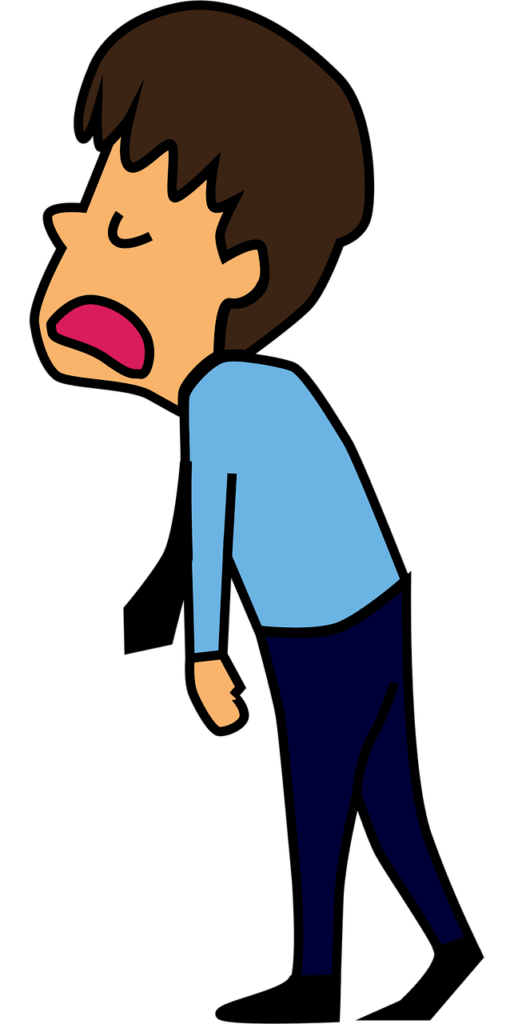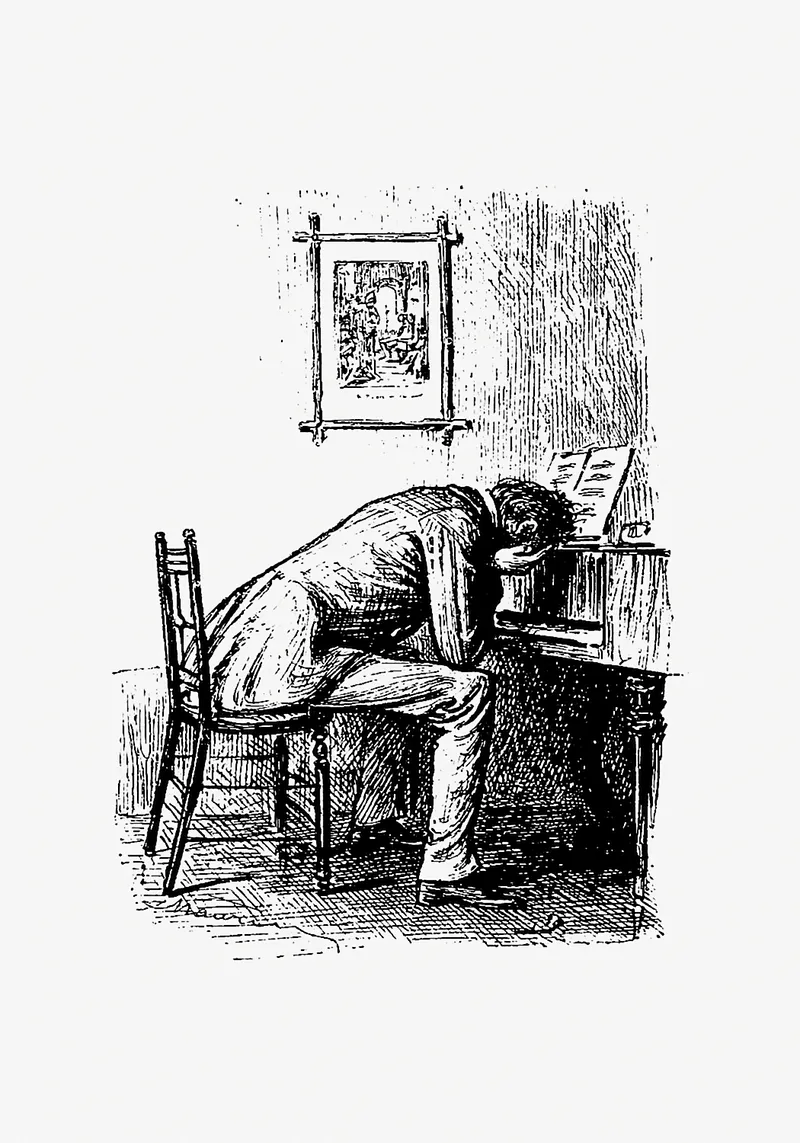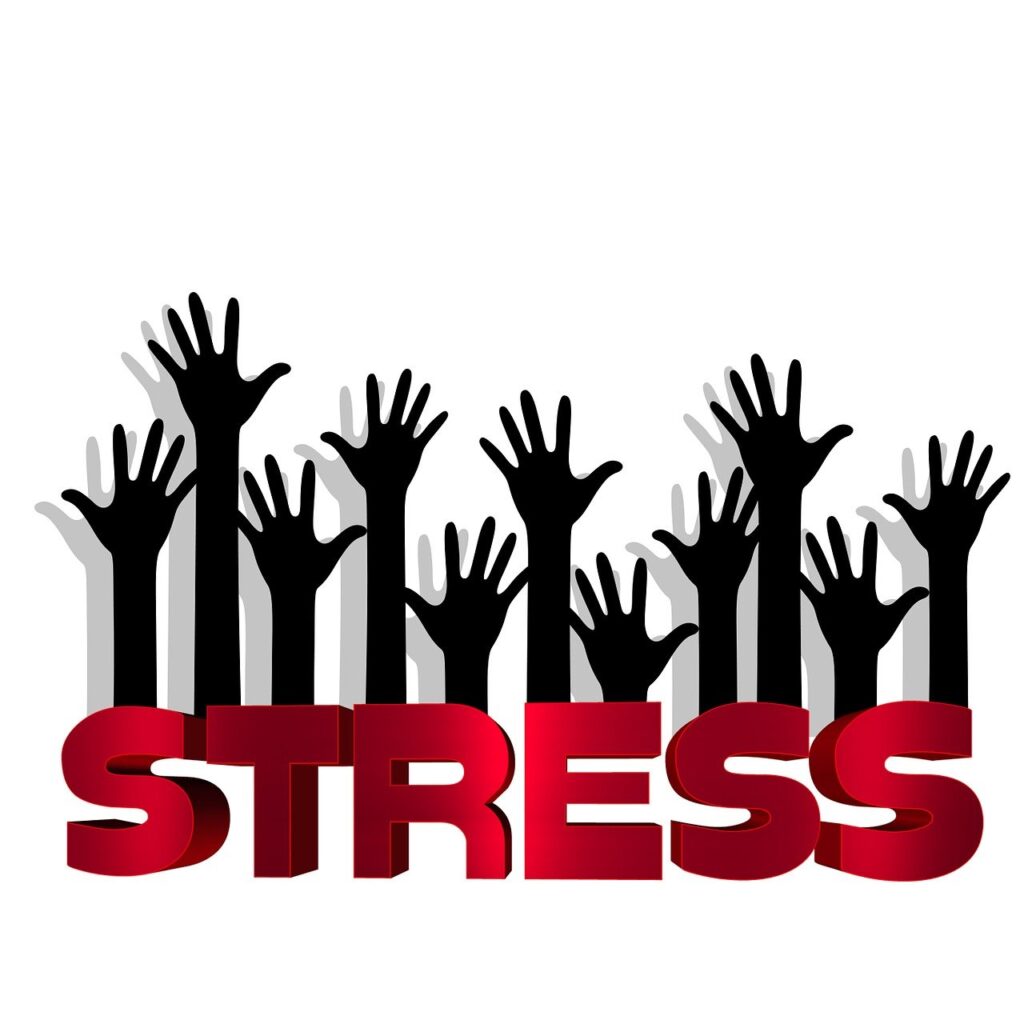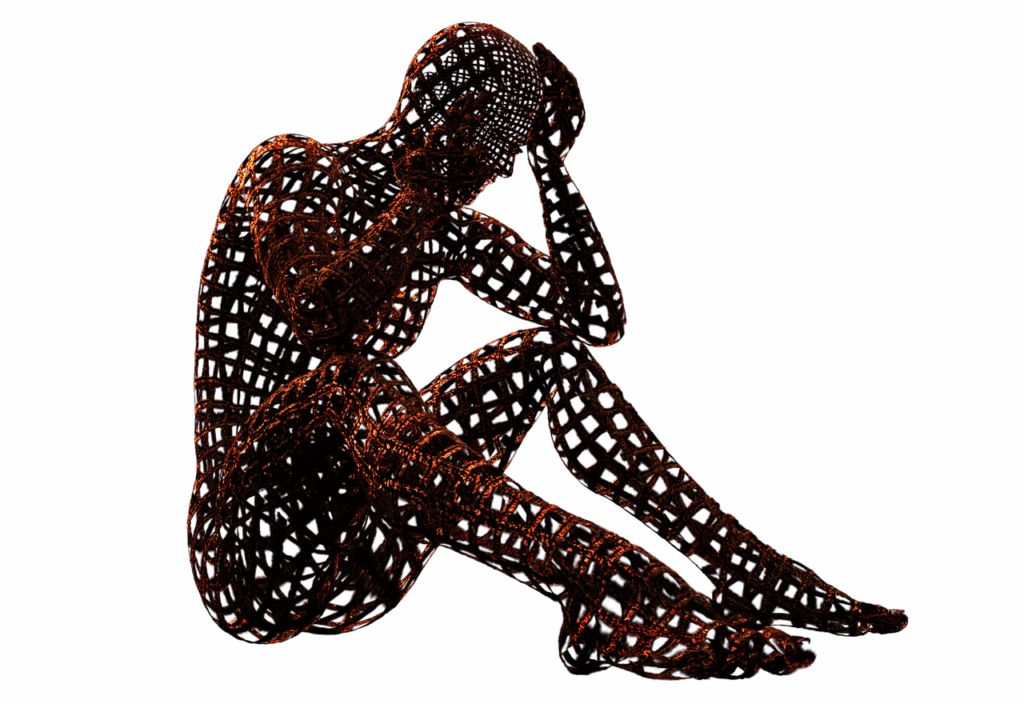
In our hyper-connected, always-on world, the relentless pace of modern life has quietly propelled burnout from a relatively rare condition into what many now consider a modern epidemic. It’s no longer just a buzzword; it’s a chronic state of physical, emotional, and mental exhaustion that can profoundly derail your health, relationships, and even your career. You might dismiss persistent tiredness or a sudden wave of apathy as simply “a bad week” or “a stressful day,” but these feelings can often be the subtle whispers of something much more significant brewing beneath the surface.
Burnout isn’t merely intense stress; it’s a deep-seated depletion that occurs when chronic workplace stress, or even prolonged stress from caregiving or other life roles, hasn’t been successfully managed. The World Health Organization officially recognized burnout in 2019 as an “occupational phenomenon,” highlighting its serious implications for well-being. This syndrome is typically characterized by three core dimensions: emotional exhaustion, a cynical or detached attitude towards your work or those around you (depersonalization), and a pervasive feeling of reduced personal accomplishment, where you feel ineffective or that nothing you do matters.
It’s easy to push through, believing that more effort will conquer whatever ails you. However, this often exacerbates the problem, leading to a point where you feel too exhausted to function. The good news is that recognizing the signs is the first, most crucial step towards healing and recovery. This comprehensive guide will illuminate 12 clear indicators that you might be on the verge of burnout, helping you understand what’s truly going on so you can take proactive steps to regain your balance and prevent its debilitating effects.

1. **Constant Fatigue That Sleep Doesn’t Fix**One of the earliest and most relentless signs of burnout is a persistent, overwhelming fatigue that seems immune to a good night’s sleep or a relaxing weekend. This isn’t your average tiredness after a long day; it’s an enduring physical and mental exhaustion that lingers, making you feel “bone tired” or “mentally fried.” Even when you try to rest, the feeling of depletion remains, signaling that your body and mind are operating on fumes, far beyond typical stress.
This profound weariness extends beyond just needing a nap. According to experts, when chronic fatigue isn’t linked to a diagnosed sleep disorder or another medical condition, it’s often a direct consequence of prolonged stress or an impending burnout. Your body is quite literally telling you that it’s had enough, struggling to recover from the constant demands placed upon it. Every small task, from making breakfast to answering an email, can begin to feel monumental, draining an already depleted energy reserve.
Psychologist Adam Borland, PsyD, notes that fatigue is a major symptom of burnout, affecting all areas of life. He explains that people might feel like sleeping all the time, or find even simple tasks take longer to complete. This sensation has been particularly magnified by recent global stressors, with many individuals struggling to balance professional responsibilities with personal demands like parenting or virtual schooling, often without a clear blueprint to navigate such unprecedented pressures.
Read more about: Reclaiming Your Attention: A Practical Guide to Breaking Free from the Endless Scroll of Social Media
2. **Detachment or Cynicism at Work**Have you noticed a growing disinterest in your job, or a tendency to mentally check out during meetings? Perhaps you find yourself avoiding social interactions with colleagues or feeling increasingly critical of routine work tasks. This emotional distancing is a hallmark of depersonalization, a core component of burnout where you begin to develop a cynical or detached attitude towards your job or the people around you.
This shift often begins subtly. You might catch yourself making sarcastic remarks about projects you once cared about, or feeling a distinct lack of interest in team initiatives. Over time, these small acts of disengagement can escalate into a full-blown detachment from your work identity and purpose. Basic tasks that once felt manageable, such as responding to a coworker’s email or answering a phone call, can become intensely annoying, fostering a pervasive sense of tedium.
This critical stance can extend to the very people you serve. While few enjoy dealing with angry customers, when interacting with even non-angry clients makes you feel overwhelmed, it’s a significant indicator that you might need a break. Dr. Borland echoes this sentiment, observing that many people he works with start questioning the point of their work, asking: “The work that I’m doing, is it really making a difference? Do I even really enjoy what I’m doing anymore? Or am I just kind of going through the motions?” This indicates a profound lack of satisfaction in the work itself.
Read more about: Finding the Song: How Poems and Prayers Offer an Antidote to Cynicism in Life’s Unfiltered Journey
3. **Reduced Performance and Productivity**Burnout doesn’t just affect how you feel; it significantly impacts your cognitive function and ability to perform. You might find it increasingly difficult to concentrate, prioritize tasks, or tap into your creative reserves. Even if you’re physically present at your desk, your mind feels elsewhere, making genuine engagement and effective work nearly impossible. This isn’t laziness, but rather a profound mental fatigue setting in.
This cognitive impairment often translates into tangible professional struggles. Deadlines might start to slip, mistakes become more frequent, and you find yourself constantly falling behind. The quality of your work may diminish, and what once felt like a manageable workload now seems insurmountable. This downward spiral is particularly insidious, as struggling to perform can lead to feelings of failure, which in turn further fuels the very burnout you’re experiencing.
When you don’t feel adequately challenged, or conversely, feel overwhelmed by the sheer volume of work without sufficient support, tasks can morph into a tedious chore. Clocking in, answering calls, or engaging in other mundane duties might start to demand far more energy and effort than they used to. This struggle to pay attention or concentrate, especially if it’s a new development, is a crucial sign that work-related stress could be taking a serious toll on your mental acuity.
Read more about: Reclaiming Your Attention: A Practical Guide to Breaking Free from the Endless Scroll of Social Media

4. **Irritability and Mood Swings**If you’ve noticed yourself becoming unusually short-tempered, snapping at colleagues, or losing patience with loved ones over minor issues, these aren’t just isolated bad moods. They are often significant psychological warning signs that you are deeply overwhelmed and operating far beyond your emotional capacity. It can feel like you’re a fuse just waiting to blow, reacting intensely to situations that previously wouldn’t have ruffled your feathers.
Chronic workplace stress, a primary catalyst for burnout, has a direct impact on your emotional regulation. It can dysregulate your emotional responses, making you more reactive, less resilient, and prone to rapid shifts in mood. What might seem like an overreaction to an outsider is, for someone on the brink of burnout, a genuine sign of an exhausted emotional reserve. The capacity to handle even minor frustrations diminishes considerably.
Experts highlight that irritability is frequently reported alongside other classic burnout symptoms like increased tiredness, aches, and changes in sleep or appetite. This heightened state of emotional fragility means that your ability to manage even small stressors is severely compromised. If you find yourself frequently getting angry or frustrated at things that once seemed trivial, it’s a clear signal that your emotional well-being needs immediate attention and a significant break.
Read more about: Beyond the Buzz: 14 Surprising Signs You’re More Stressed Than You Realize (And How to Bounce Back)

5. **Trouble Sleeping (or Sleeping Too Much)**Burnout is intricately linked to significant disturbances in your sleep patterns, manifesting in various ways. For some, the relentless churn of racing thoughts, anxieties about work, or an inability to switch off makes it incredibly difficult to fall asleep. Their minds remain active, replaying stressors and preventing the necessary relaxation needed for slumber, even when their bodies are utterly exhausted.
Others might find themselves frequently waking up throughout the night, interrupting vital restorative sleep cycles. Conversely, some individuals cope with the overwhelming feelings of burnout by retreating into excessive sleep, using it as an escape from their daily realities. Whether it’s insomnia or hypersomnia, any significant change in your usual sleep habits can be a red flag, indicating that your body is struggling to regulate itself under immense pressure.
Poor sleep doesn’t just add to the fatigue; it creates a vicious cycle that worsens all other burnout symptoms, particularly emotional exhaustion and mental fog. Kaytee Gillis, LCSW, points out that if you’re struggling to fall or stay asleep, it’s often directly attributable to the profound stress impacting your body. Dr. Borland also emphasizes the importance of observing “changes to sleep patterns” as a key indicator, underscoring that our habits often reveal when something significant is amiss in our overall well-being.
6. **Physical Symptoms You Can’t Explain**Beyond the emotional and mental toll, burnout frequently manifests through a range of baffling physical symptoms that don’t seem to have a clear medical explanation. Common complaints include persistent tension headaches, muscle aches and stiffness that defy rest, and various stomach issues. These aren’t just minor discomforts; they are your body’s urgent signals that it’s under immense and prolonged stress.
Chronic stress initiates a cascade of physiological responses, leading to inflammation throughout the body and a weakened immune system. This makes you far more susceptible to frequent illnesses, such as colds, flu, or other infections, as your body struggles to defend itself. If you’ve been making more trips to the doctor than usual, or experiencing persistent aches and pains with no obvious cause, it’s crucial to consider burnout as a potential underlying factor.
Moreover, existing medical conditions can significantly worsen under the weight of burnout. Individuals might find their blood sugars are higher, blood pressure becomes elevated, or other chronic health concerns are exacerbated. Dr. Borland confirms this, stating, “A lot of my patients deal with pretty significant headaches” as a common burnout side effect. He reiterates that our bodies are constantly communicating with us, providing vital clues about our overall state of well-being, and it’s imperative that we learn to listen to them.
Read more about: Debunking the Stigma: Unveiling the Truth Behind 13 Pervasive Mental Health Myths
7. **Loss of Motivation and Passion**Burnout has a sneaky way of stealing your spark, transforming once-exciting tasks and aspirations into a dull, meaningless grind. If you find yourself struggling to muster enthusiasm for projects you used to love, or feel a pervasive sense of apathy toward your work, it’s a strong signal that your motivation system is under siege. This isn’t about being lazy; it’s your brain quite literally signaling that its emotional and cognitive reserves are severely depleted.
This depletion can extend far beyond the workplace, seeping into your personal life. Hobbies that once brought you immense joy, social gatherings that you eagerly anticipated, or even simple activities you found fulfilling can start to feel like burdensome obligations. You might cancel plans, retreat into yourself, or simply lack the energy to engage with anything that doesn’t feel absolutely essential. This broad erosion of interest is a profound indicator of burnout.
Experts note that when you don’t feel adequately challenged, or conversely, feel overwhelmed by the sheer volume of work without sufficient support, tasks can morph into a tedious chore. This can leave you asking, “The work that I’m doing, is it really making a difference? Do I even really enjoy what I’m doing anymore? Or am I just kind of going through the motions?” This indicates a profound lack of satisfaction in the work itself, signifying a critical loss of passion.
Read more about: Jonathan Lear: A Philosophical Legacy Forged by Bridging Ancient Wisdom and Freudian Thought

8. **Feeling Trapped or Hopeless**When burnout truly takes hold, it can create a suffocating sensation of being trapped, as if there’s no visible exit from the relentless cycle of work, stress, and profound fatigue. This isn’t just a temporary dip in spirits; it’s a pervasive sense of hopelessness or despair that colors your entire outlook. You might feel like you’re caught in an endless loop, where every day mirrors the last, and the future appears equally bleak.
This feeling of being stuck is particularly insidious because it erodes your belief in your ability to change your circumstances. While depression is a diagnosable mental health condition, distinct from burnout, a prolonged state of hopelessness stemming from burnout can, if left unaddressed, pave the way for depressive symptoms. The critical difference lies in the trigger: burnout’s hopelessness is typically a response to specific external stressors, often occupational, making it feel inescapable within that context.
Dr. Borland illustrates this distinction by suggesting that if you’re dealing with burnout, detaching from the source of stress (like taking a vacation) might allow you to relax and enjoy yourself. However, if you’re experiencing depression, those depressive symptoms are likely to accompany you wherever you go. The feeling of being “stuck” in burnout is often tied to your environment, making it crucial to identify and address those specific triggers rather than internalizing the feeling as a personal failing.
Read more about: The King of Cool: An Esquire Deep Dive into Steve McQueen’s 12 Essential Films
9. **You’re Using Unhealthy Coping Mechanisms**In an attempt to self-soothe or escape the relentless pressures of impending burnout, many individuals unwittingly turn to coping mechanisms that, while offering temporary relief, ultimately exacerbate the problem. These unhealthy strategies are subtle yet potent indicators that your body and mind are struggling to manage overwhelming stress. It’s a vicious cycle where the “fix” only makes the underlying issue worse.
This might manifest in various ways, such as an increased reliance on alcohol or caffeine to either wind down or amp up, or resorting to emotional eating when stressed. Conversely, some individuals might experience a significant loss of appetite. Other common methods include excessive use of social media, binge-watching television, or isolating yourself from friends and family – behaviors that provide a temporary distraction but prevent genuine processing and healing.
Kaytee Gillis, LCSW, and other experts highlight that these self-medicating behaviors are often a desperate attempt to manage uncomfortable feelings. While they might offer a momentary reprieve from the intensity of burnout symptoms, they inevitably deepen the cycle of depletion and detachment. Recognizing these patterns is a vital step toward breaking free, as they signal that your intrinsic ability to regulate stress has been severely compromised.
Read more about: Beyond the Binge: Unpacking the Enduring Allure of Rewatching Old Sitcoms for Modern Audiences
10. **Strained Relationships**Burnout rarely remains confined to the workplace; its insidious tendrils often reach into your personal life, creating noticeable strain on your relationships with partners, friends, and family. When your energy reserves are constantly depleted, and you’re battling chronic emotional exhaustion, your capacity for empathy, patience, and genuine connection dwindles dramatically. This can manifest as emotional withdrawal, communication breakdowns, and a general decrease in affection.
Loved ones often become the first to notice the shifts in your demeanor. Your increased irritability, tendency to snap at minor provocations, or pervasive sadness might be more apparent to them than to you. You might find yourself avoiding social interactions, neglecting to respond to messages, or feeling utterly drained by the prospect of spending quality time with those you care about. This isn’t a lack of love, but rather a profound lack of energy and emotional bandwidth.
The context underscores that relationships can help counteract burnout, and conversely, burnout can severely impact relationships. When you’re feeling emotionally or physically exhausted, it’s tempting to isolate yourself, but this only intensifies the problem. Nurturing your support network is crucial, as greater human connection at work and at home is shown to ease the negative effects of burnout and improve overall satisfaction. Reaching out, even when it feels difficult, can provide much-needed support and a path towards recovery.
Read more about: Seriously, Where Did These Go? 13 Haunting ‘Beloved’ Mysteries We Need Answers To!
11. **You Dread Monday (or Every Day)**While a common “Sunday-night sense of doom” about the upcoming workweek is something many people experience occasionally, if you find yourself feeling a constant, overwhelming dread that extends far beyond just Monday morning, it’s a potent signal of burnout. This isn’t just mild job dissatisfaction; it’s a profound emotional response where every day, regardless of the calendar, feels like an immense burden rather than an opportunity.
This pervasive dread is often coupled with a lack of motivation and a feeling of apathy towards your responsibilities. Getting out of bed can feel like an insurmountable challenge, and the thought of facing your daily tasks can fill you with anxiety or an intense desire to escape. It’s a clear indication that your current situation is actively draining your vitality, making even the simplest aspects of life feel heavy and unappealing.
Dr. Borland explains that people start questioning the point of their work, asking, “The work that I’m doing, is it really making a difference? Do I even really enjoy what I’m doing anymore? Or am I just kind of going through the motions?” This deep-seated questioning, combined with daily dread, reveals a fundamental misalignment between your well-being and your daily demands. It’s your psyche’s urgent plea for a significant change or break.

12. **Loss of Meaning or Purpose**At its core, burnout can strip away more than just your energy; it can lead to a deeper, more existential crisis where you begin to question the very meaning and purpose of your work, your goals, and even your identity. This isn’t merely about feeling unproductive; it’s about experiencing a profound emotional disconnection from the things that once gave your life direction and significance. You might feel adrift, wondering why you’re investing so much effort if it all feels ultimately pointless.
This particular symptom is especially prevalent among professionals in helping fields, such as healthcare and teaching, where the emotional investment is high, and the perceived impact can feel diminished under chronic stress. When you’ve poured your heart and soul into something, only to feel utterly depleted and question its value, it’s an incredibly demoralizing experience. This loss of purpose creates a void that further fuels feelings of hopelessness and detachment.
The context highlights that feeling your work doesn’t matter or is not making a difference is a “huge sign of burnout.” This isn’t just a fleeting thought; it’s a persistent internal dialogue that erodes your sense of accomplishment and drives the feeling that nothing you do matters. Reconnecting with your core values and understanding what truly drives you becomes essential in navigating this profound aspect of burnout and beginning the journey toward reclaiming your sense of purpose.
**Moving Beyond Burnout: Strategies for Recovery and Prevention**
Recognizing these signs is a powerful first step, but the journey doesn’t end there. Burnout isn’t a condition you can simply “push through”; it demands intentional action and a commitment to nurturing your well-being. The good news is that recovery is absolutely possible, and there are expert-backed strategies you can implement to not only heal from current burnout but also to build resilience and prevent its unwelcome return. Empowering yourself with these actionable tips can help you reclaim your health and vitality, shifting from merely surviving to truly thriving.
The first crucial step is to acknowledge and accept that you are experiencing burnout. As Kaytee Gillis, LCSW, notes, “You can’t heal if you do not recognize there is something to heal from.” This means giving yourself permission to slow down, listen to your feelings, and resist the urge to “grin and bear it.” Admitting you’re burned out isn’t a sign of weakness; it’s an act of courage and self-compassion, paving the way for effective healing.
One of the most impactful strategies is to **set boundaries**. Burnout thrives in boundary-less environments, where the lines between work and personal life become hopelessly blurred. Dr. Borland emphasizes the difficulty many people face in “finding the necessary boundaries in order to manage their personal life and work demands.” This means learning to say no more often, limiting after-hours emails, and consciously reclaiming your evenings and weekends. Setting an alarm to signal the end of your workday or writing down a clear to-do list can help establish these crucial divisions. Boundaries are not selfish; they are essential for protecting your energy and mental space.
**Prioritizing rest and sleep** is non-negotiable for recovery. Deep rest replenishes both your body and brain, which have been operating on empty. Creating a consistent wind-down routine, reducing screen time before bed, and aiming for 7-9 hours of quality sleep can significantly impact your recovery. While it might seem counterintuitive, research shows that taking regular, shorter breaks throughout the day – “micro-breaks” – is also vital. These brief disconnections from work stressors help manage daily stress levels in real-time and improve motivation, concentration, and energy.
Furthermore, **reengaging with joy** is a powerful antidote to burnout’s draining effects. This means intentionally making time for activities that truly make you happy and are just for you. Whether it’s listening to music, taking nature walks, exploring creative hobbies, or simply finding moments for laughter, these aren’t luxuries but vital medicine for your soul. Studies indicate that engaging in satisfying, meaningful activities outside of work is highly effective in helping you feel recovered and revitalized.
It’s also crucial to **lean into your support network**. When burnout makes you feel emotionally and physically exhausted, the instinct might be to isolate yourself. However, reaching out to coworkers, friends, family, or a therapist can be incredibly productive. As the context suggests, “greater human connection at work and at home is shown to ease the negative effects of burnout and improve satisfaction at work.” Therapy, as Dr. Borland explains, offers a safe, impartial space to “refill that tank,” process emotions, and develop an action plan for recovery.
Finally, consider **evaluating your work environment**. If your job is the primary source of your burnout, it’s worth exploring potential adjustments. Can you delegate more tasks? Is a shift in roles or responsibilities possible? For some, it might even mean exploring a career change, as one teacher client knew she was burned out when she was looking for jobs, “anything but teaching!” While not everyone has the luxury of quitting, communicating difficulties with management or focusing on the things within your control—like scheduling rest or pursuing hobbies—can still make a significant difference.
Read more about: Fortify Your Digital Fortress: 14 Proactive Strategies to Shield Your Identity from Scammers
Burnout doesn’t have to be a permanent state. By listening to your body’s urgent signals, embracing intentional self-care, and making strategic changes, you can pull back from the brink. Remember, your health and well-being are paramount. It’s not about working harder to overcome burnout; it’s about working smarter, honoring your limits, and cultivating a life that supports your vitality. You deserve to live a life filled with purpose and passion, not exhaustion and dread. The power to heal and thrive is within you—take that first brave step today.










